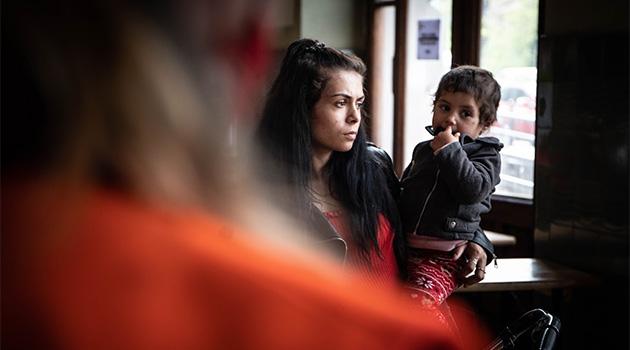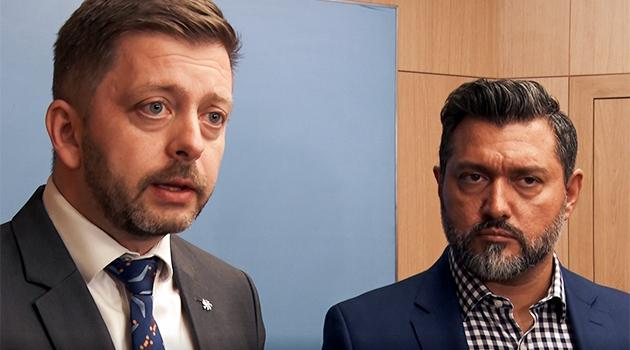Czech Police and Romani nonprofits have begun informing homeless Romani refugees from Ukraine at Prague's main train station of their options

At the main railway station in Prague on Friday, special teams began circulating among the homeless Romani refugees from Ukraine who have been living there to give them more detailed information about their situation and other ways to solve it. Each team of two plainclothes police officers and a representative of a Romani nonprofit organization explains to the refugees that if they have Hungarian citizenship in addition to Ukrainian citizenship, they will not be immediately eligible for either financial or material assistance in the Czech Republic.
The strategy to inform such refugees that the aid capacities in the Czech Republic are already “full” was agreed to at Wednesday’s meeting between the Romani nonprofit organization and Interior Minister Vít Rakušan. The minister has reiterated that he wants to resolve the situation at the main train station in Prague by the end of May.
“Our staffers are on the scene together with the police officers to ensure the communication will be comprehensible and effective. We want to ensure that the information passed on to the refugees has been understood, that it won’t just be communicated in the jargon of migration officials and the police,” Nikola Taragoš, director of Romodrom, told news server Romea.cz; the organization, together with others, is providing aid to refugees from Ukraine, and not just Romani ones.
“The refugees will receive an information service from us that will go more in depth about their options so that they can then make decisions with the relevant information,” Taragoš added. At the same time, the interviews will be used to collect more information about the refugees so the authorities and nonprofit organizations can to a better job at targeting aid to them.
“Police and representatives of the Romani nonprofit are circulating among the refugees, family by family, and have a better chance of speaking with them, discovering more detailed information, and being better able to aid them on that basis,” crisis intervention worker Michal Horniecky from the Organization for Aid to Refugees, which is assisting at the main train station, told Romea.cz. “The NGO and police teams will be coming here in the morning and in the evening for three-hour shifts. The police are not in uniform, they just have armbands,” Horniecky added.
According to Interior Minister Vít Rakušan, the police officers are in civilian dress so the emotional response to them will not be negative. At the same time, the ministry is also preparing Hungarian-language leaflets that will be distributed to refugees for whom it is ascertained that they also have a Hungarian passport.
The leaflets are not yet being distributed to the refugees. “In the leaflet for the Hungarian speakers there will be information about the fact that they are not eligible for any aid in the Czech Republic. At the same time, we will describe the assistance to which they are entitled in Hungary,” the minister told the media; he previously said that those who want to leave the Czech Republic will be provided free transport to Hungary.
“We cannot force anybody to do so,” the minister said of the option to leave the Czech Republic. Despite all the efforts made by news server Romea.cz to repeatedly ask the Interior Ministry how many refugees from Ukraine with dual citizenship there are in the Czech Republic, that information has not been forthcoming.
According to Rakušan, there are currently three types of refugees at the main train station in Prague. The first are those who have received temporary protection, but who have returned to the main train station and remain there still.
Such refugees have either gone there to be with other community members or because accommodation that meets their needs has not been found for them. The second group are those who are in the process of vetting their citizenship and who are entitled to wait in the country during that process.
“We are doing our best to accommodate [those being vetted] in the little tent city in Troja or elsewhere while they wait,” the Interior Minister said. The third group of homeless Romani refugees from Ukraine now living at the main train station in Prague are those not eligible for any aid whatsoever.
The state cannot force such refugees to leave the country, but can only “motivate” them to do so. “We are doing our best to aid them with food and the like, but we have to motivate them to leave the Czech Republic, because no bonuses, neither financial ones nor material ones, are in store for them here,” the Interior Minister said.
